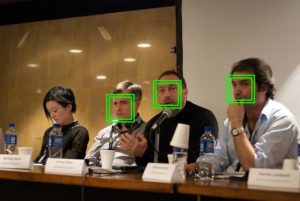 Officials at Florida’s busiest airport announced that it is becoming the first in the nation to require a face scan of passengers on all arriving and departing international flights, including US citizens. $4 million has been committed to the program.
Officials at Florida’s busiest airport announced that it is becoming the first in the nation to require a face scan of passengers on all arriving and departing international flights, including US citizens. $4 million has been committed to the program.
The face scan technology has been tested out at the airport since late April in an effort to speed up wait times throughout the security check process.
Nine airports already use face scans for some departing international flights but they don’t involve all international flights like the program in Orlando.
Similar technology is being tested out at other airports as well and some airlines have boasted success in boarding their largest planes in under 15-20 minutes thanks to the tech.
Airports in Atlanta, Boston, Chicago, Houston, Las Vegas, Miami, New York and Washington already use similar technology for face scans for some departing international flights. Some airlines boast success in boarding their largest planes in under 15-20 minutes thanks to face scan.
In order to verify the traveler’s identity, the image from the face scan is compared to the federal database of passport and visa photos that has images of people who should be on the flight. According to information released by U.S. Customs and Border Protection officials, the goal is to make sure passengers are not traveling with fake documents or overstaying their visas.
The scanners are outside of the international gates and passengers will pass through them to board a flight or deplane. According to information released by the airport and by CBP, the scanners match travelers’ faces to the federal database of passport and visa photos.
The announcement at Orlando International Airport raised some concerns over the personal data and some privacy advocates claim there are no formal rules for handling data received from the scans, nor formal guidelines on what would happen if a traveler is wrongly prevented from boarding.
According to CBSN.